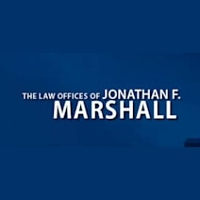If you are facing criminal charges, one of the most important things you can do is hire a good criminal defense attorney to fight your case. You want a lawyer who will not only provide excellent legal representation but also offer guidance and support through a challenging time and do all they can to get your charges dismissed or reduced. But how can you know if they are good? To ensure you select the best attorney for your needs, it’s important to ask the right questions during the hiring process.
1. What is Your Experience with Cases Like Mine?
Criminal law is a very broad field, encompassing everything from murder cases and drug trafficking to speeding tickets. You want an attorney who not only knows criminal law but one who specializes in the specific type of case with which you are involved. It’s important to make sure the lawyer has substantial experience with cases similar to yours, as this can be crucial for a favorable outcome. You will want to ask questions such as ‘Have you handled cases similar to mine before?’ and ‘What were the outcomes of those cases?’
2. What Are Your Qualifications and Credentials?
Not all lawyers are equal. Depending on the complexity of your case, you will want to verify what sort of education, training, and professional credentials the lawyer has, as this can give you insight into their expertise and competence. You will want to ask questions such as ‘Where did you attend law school?’ and ‘Are you a member of any professional organizations, such as the National Association of Criminal Defense Lawyers?’
3. What Will Be Your Approach to Handling My Case?
Different lawyers will handle the same type of case differently depending on their personality, experience, and relationships with the prosecutor. It’s important to understand the lawyer’s strategy and approach to your case so you can gauge whether they are going to be the right fit for your needs. You will want to ask questions such as ‘What is your strategy for my case?’ ‘How do you plan to investigate and build my defense?’ and ‘What are the potential challenges, and how do you plan to address them?’
4. What Are the Possible Outcomes?
When facing criminal charges, one of the most forefront things on a person’s mind is what sort of consequences could I be looking at. A good lawyer will provide a realistic assessment of your case, including all potential outcomes, from complete dismissal to any jail time or fines. This way, you can make informed decisions about how to proceed. You will want to ask questions such as ‘What are the best and worst-case scenarios for my case?’ and ‘What is the likelihood of my case going to trial versus reaching a plea agreement?’
5. Who Will Be Handling My Case?
Some larger law firms have quite a few lawyers on staff, and it is not uncommon for senior lawyers in the firm to delegate much of the work to junior associates. It’s important to know who will be actively working on your case and representing you in court. You will want to ask questions such as ‘Will you be handling my case personally, or will other attorneys be involved?’
6. What Are Your Fees and Payment Arrangements?
Besides the worry of possible jail time or fines to be paid is the concern of paying for your legal defense. Legal fees can be substantial depending on the circumstances of the case, and it’s essential to understand how you will be billed and what costs you can expect. You will want to ask questions such as ‘What is your fee structure? Do you charge a flat fee or hourly rate?’ and ‘Are there additional costs, such as filing fees or expert witness fees?’
7. How Will We Communicate?
When you are dealing with criminal charges, it can be a very stressful time. Effective communication between you and your lawyer can help to alleviate some of those fears. It’s important to understand how to contact your lawyer as well as what sort of frequency to expect from their end so that you can set your expectations accordingly and stay informed on the workings of your case. You will want to ask questions such as ‘What is the best way to reach you? Phone, email, or in-person meetings?’ and ‘How quickly can I expect a response to my questions or concerns?’
A secondary question related to communication with your lawyer is – what languages do you speak? The United States is a diverse country, with many different nationalities living together. It’s important that you understand the details of your case and if English is not your first language there could be a language barrier that leads to problems down the road. For example, our New Jersey law office has lawyers who speak Spanish, so if you are more comfortable working with a Spanish criminal lawyer you have that option.
8. What Are Your Success Rates?
While past performance does not guarantee future results, understanding the lawyer’s track record can provide you with confidence in their abilities. You will want to ask questions such as ‘What is your success rate with cases similar to mine?’ and ‘Can you provide references or testimonials from past clients?’
9. What Are My Rights and Options?
It is important to understand what your legal rights and options are related to your criminal case so that you can make informed decisions about how to proceed with your case. A good criminal lawyer will be able to lay out exactly what your rights are related to the charges you are facing. You will want to ask questions such as ‘What are my rights at this stage of the legal process?’ and ‘What options do I have moving forward?’
10. How Can I Help in My Defense?
When it comes to defending yourself against criminal charges, although your lawyer will do the heavy lifting, it is still important for you to be an active participant in your defense. Understanding what you can do to assist in your defense can improve your case’s outcome and ensure you are proactive in your legal strategy. For example, if you are looking at domestic violence charges, making sure that you maintain significant distance from your accuser moving forward helps to make sure you aren’t arrested for violating a protective order and end up hurting your case. You will want to ask questions such as ‘What information or documents should I provide?’ and ‘Are there specific actions I should take or avoid?’
Take Time To Speak With A Criminal Lawyer Near You
Hiring the right criminal lawyer is a critical step in defending your rights and achieving the best possible outcome in your case. By asking these key questions, you can gather the information needed to make an informed decision and ensure that your lawyer is well-equipped to handle your case effectively. Ultimately, the right lawyer will not only have the expertise and experience to fight your case and protect your rights, but it will be someone you trust and feel comfortable working with throughout the legal process.



